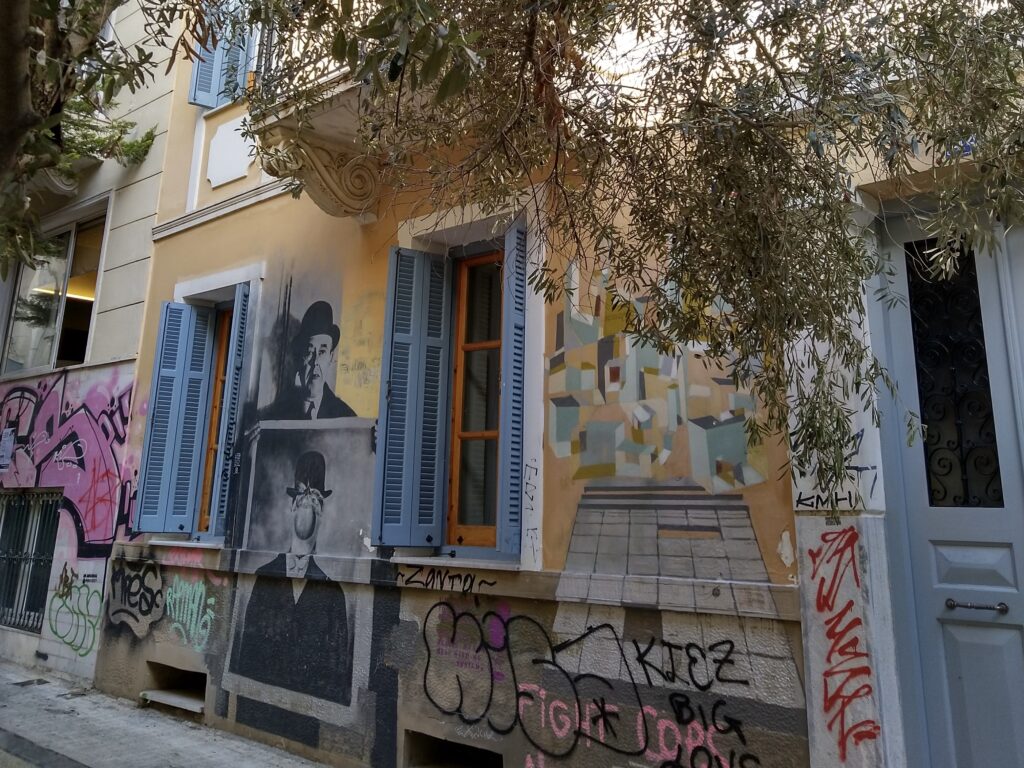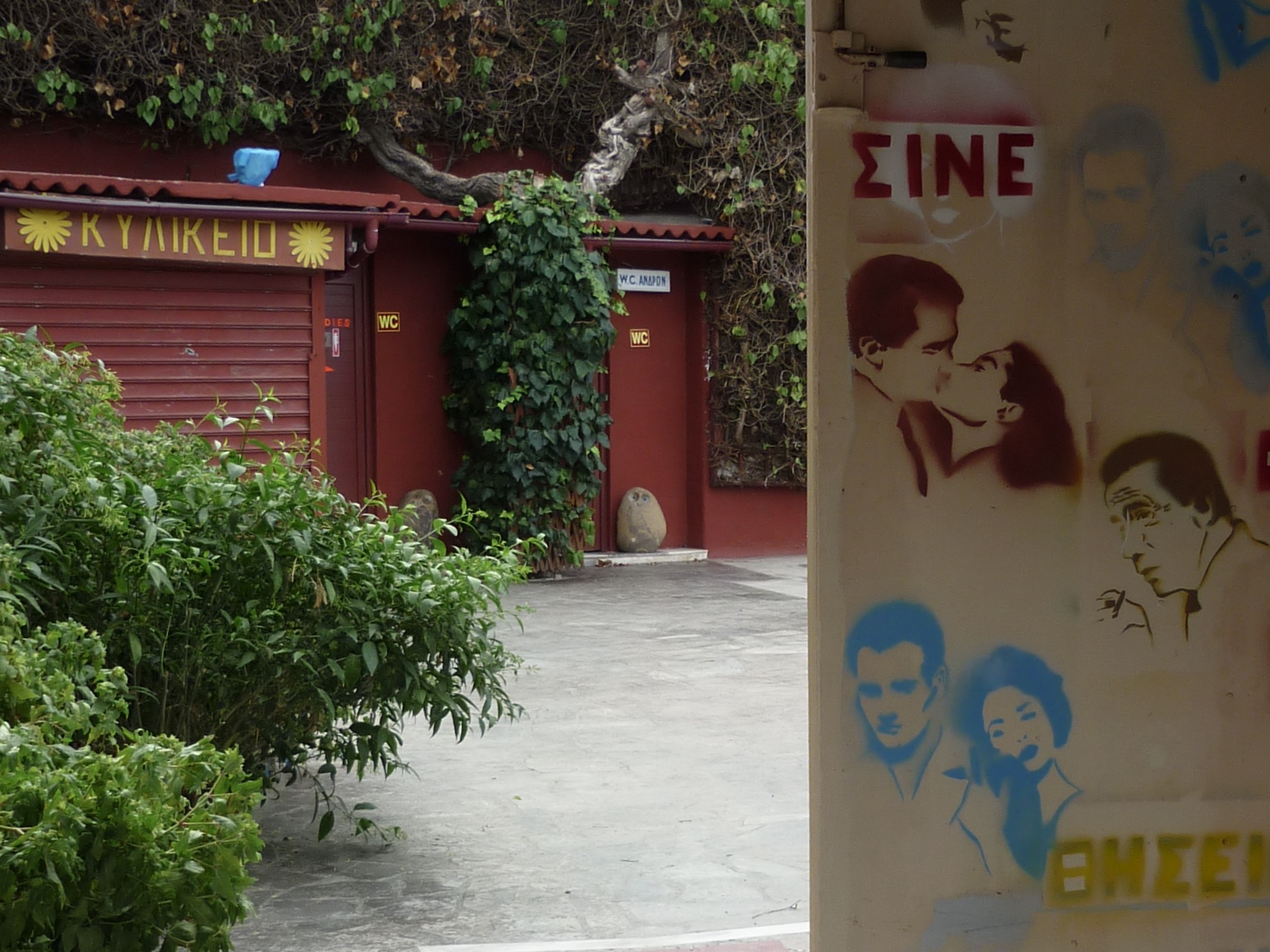“Stella, leave.”
“Leave Stella, I will kill you.”
This is the opening of the final scene of Stella, the 1955 film from Greek director Mihalis Kakoyannis, starring Melina Mercouri and Giorgos Fountas.
Stella doesn’t leave. With trembling determination, she continues to walk towards Miltos, the man she had left standing at the altar the day before. In the scene unfolding, Miltos will warn her again–”I’m holding a knife.”– then beg her to marry him still so that he can throw the knife away, beg her to leave again, until he can only cry out in despair: “Why are you not leaving? WHY?!” Then they meet, in the middle of the square in a quiet neighbourhood in Athens. Miltos raises his arm above his head, Stella standing right in front of him, still. As soon as he has planted the knife in her chest, she falls in to his arms, whispering: “Kiss me, Milto, kiss me.” Miltos, now full of tender care, kisses her, the last he will have of his once-fiancée. Stella dies in his arms.
In Kakoyannis’s better known Zorba the Greek, we get to know a community on the island of Crete. The protagonist Basil owns a lignite mine there and he has hired his now-friend and mentor Zorba to help him exploit it. In the village, there is a widow who has turned down all men since her husband died, including a boy who is hopelessly in love with her. However, Zorba points out to his boss that she does have interest in him. Once it becomes known in the village that Basil has staid the night with her, the boy kills himself. Soon after, he is revenged by his father and the other men of the village by killing the widow, when she tries to attend the boy’s funeral.

While women are often considered to be the “weaker” sex, falling victim to men’s physical violence, in 2021, according to data of the WHO, in Northern America and Europe, men were almost four times as likely as women to die by suicide. (In the rest of the world, only in Oceania and Asia these figures were significantly lower, 2.8 times and 1.6 times respectively.)1 Men are not necessarily making more attempts to take their own lives than women. Rather, their attempts are fatal more often than women’s.2 Their own physical strength is also their physical vulnerability.
“I sat with my anger long enough until she told me her real name was grief.”
I believe, men and women alike can feel connected in these words from Narnia-author C.S.Lewis. I at least, have noticed that grief, sadness and my inability to see the reality of my loss, has made me angry with myself as well as with the people around me.
Rather than becoming physically violent (though I have had my outbursts), I expressed myself in other ways, more emotionally, for example by becoming very coercive towards others, trying to get them to feel or do for me to feel loved and accepted, rather than trusting myself with that responsibility. I longed for people to heal my loss, to fill up the coldness it had left, take away the pain and its stain, the loneliness. I needed to feel whole again and I was angry with other people for not giving it to me, especially the ones I loved most, the ones from whom I longed for it most.
And so I wonder, the anger I expressed emotionally, is that the same anger men express when they become physically violent? What was Miltos afraid of the moment he screamed “Why?!”? Why could he not stop himself? And if women expect from men to not hurt them physically, how can women become aware of when they are hurting men emotionally? What are their cues? How can we listen to men’s physique, their actions, if that is indeed how they express themselves more naturally?
I would love to learn your experiences. What are your ways to let other people know you’re in pain and what you would like to ask from them? Do you get angry when you feel sad, afraid? Are you a woman who expresses her anger more physically? A man who feels more comfortable with expressing yourself emotionally? Or both? Let me know in the comments.
For those interested, the film Stella is absolutely beautiful for its cinematography, full of traditional Greek music (featuring also the famous Greek singer Sofia Vembo; and Melina Merkouri sings the beautiful but ominous song “Double-edged knife”.), dancing and community life in the Athens neighbourhood of Exarchia. I encourage you to make up your own mind about the final scene and watch the full history of the love between Miltos and Stella that is vibrant, erotic, full of joy and imagination, and, indeed, dangerous. The film is available online, with English subtitles at: https://archive.org/details/stella_1955_202110.
The featured image shows the entrance to an open air cinema in Athens, close to the Acropolis.

Leave a Reply